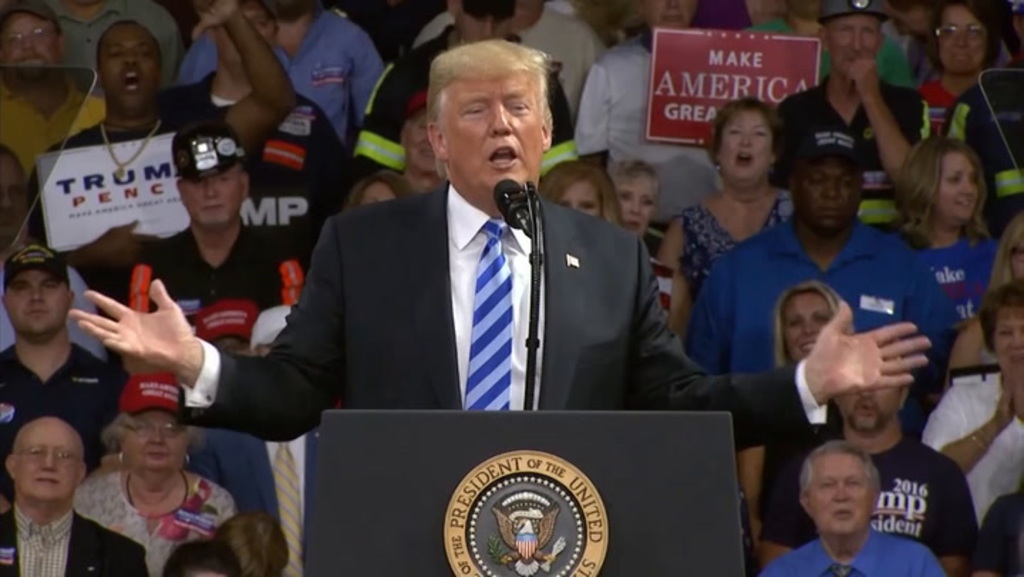Yet again, the Deep State is providing cover for the highest level of espionage and treason carried out consistently throughout the various departemnts of the Executive branch under the Obama administration.
***Article first published by 'The Hill' on Oct. 7, 2018***
To declassify or not to declassify? That is the question, when it comes to the FBI’s original evidence in the Russia collusion case.
The Department of Justice (DOJ) and the FBI have tried to thwart President Trump on releasing the evidence, suggesting it will harm national security, make allies less willing to cooperate, or even leave him vulnerable to accusations that he is trying to obstruct the end of the Russia probe.
Before you judge the DOJ’s and FBI’s arguments — which are similar to those offered to stop the release of information in other major episodes of American history, from the Bay of Pigs to 9/11 — consider Footnote 43 on Page 57 of Chapter 3 of the House Intelligence Committee’s report earlier this year on Russian interference in the 2016 presidential election.
Until this past week, the footnote really had garnered no public intrigue, in part because the U.S. intelligence community blacked out the vast majority of its verbiage in the name of national security before the report was made public.
From the heavy redactions, all one could tell is that FBI general counsel James Baker met with an unnamed person who provided some information in September 2016 about Russia, email hacking and a possible link to the Trump campaign.
Not a reporter or policymaker would have batted an eyelash over such a revelation.
Then, last Wednesday, I broke the story that Baker admitted to Congress in an unclassified setting — repeat, in an unclassified setting — that he had met with a top lawyer at the firm representing the Democratic National Committee (DNC) and received allegations from that lawyer about Russia, Trump and possible hacking.
It was the same DNC, along with Hillary Clinton’s presidential campaign, that funded the unverified, salacious dossier by a British intel operative, Christopher Steele, that became a central piece of evidence used to justify the FBI surveillance of the Trump campaign in the final days of the election.
And it was the same law firm that made the payments for the dossier research so those could be disguised in campaign spending reports to avoid the disclosure of the actual beneficiaries of the research, which were Clinton and the DNC.
And it was, in turns out, the same meeting that was so heavily censored by the intel agencies from Footnote 43 in the House report — treated, in other words, as some big national security secret.
What makes this so extraordinary is that the FBI and the DOJ would have Americans believe that a contact with a lawyer for a political party during the middle of the election is somehow a matter of national security that should be hidden from the public.
Well, that argument was proven to be a lie by the very way the interview with Baker played out last Wednesday on Capitol Hill. Baker was not interviewed in a "SCIF" — a "sensitive compartmented information facility" routinely used to discuss super-secret, highly sensitive information. There was no claim of classification over any information he provided Congress that day.
So we can now say with some authority that the earlier redaction in Footnote 43 was done in the name of a national security concern that did not exist.
Which raises the question of what the real reason was that it was hidden from public view. I think the answer can be found in an earlier set of documents that DOJ and FBI fought hard to keep secret — the text messages of those FBI love-birds Peter Strzok and Lisa Page. What we learned from their messages was that the investigation was a whole lot more about politics and and a whole lot less about verified intelligence.
There is now a concrete storyline backed by irrefutable evidence: The FBI allowed itself to take political opposition research created by one party to defeat another in an election, treated it like actionable intelligence, presented it to the court as substantiated, and then used it to justify spying on an adviser for the campaign of that party's duly chosen nominee for president in the final days of a presidential election.
And when, nine months later, the FBI could not prove the allegation of collusion between Trump and Russia, unverified evidence was leaked to the media to try to sustain public support for a continued investigation.
That means the redaction of Footnote 43 had more to do with political embarrassment than with national security. And that should concern us all.
The Founding Fathers intended government to be open and transparent except when national security was at risk. They never intended national security to be used to hide old-fashioned politics.
So, Mr. President, when you weigh those DOJ/FBI arguments against declassification, please don’t forget the ruse of the redaction that was Footnote 43.
